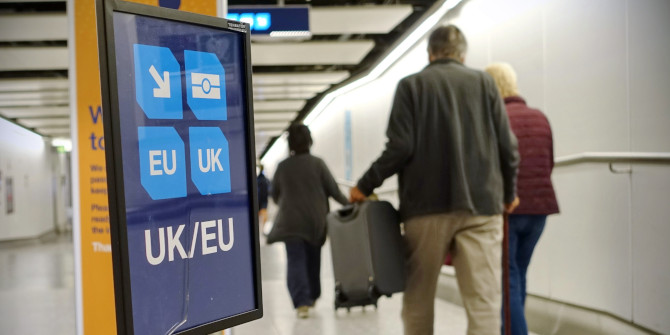Europe’s cities are the key to its future, yet they face huge and mounting challenges. Ben Rogers explores alternative ways to empower and support them and makes the case for investing more into building the skills of their leaders and the capacities of their governments.
Europe’s cities play a central role in the life of the continent – a role out of all proportion to their physical size. The EU estimates that 40% of the continent’s population live in cities, and three quarters in urban areas – cities, towns and suburbs.
Most of Europe’s wealth is generated in these areas but so are many of its most pressing policy challenges. Europe’s cities, for example, have higher rates of poverty, inequality, crime, congestion and air pollution than rural territories. Yet city governments, closer to their voters and more agile, are arguably better positioned than national bureaucracies to address these challenges.
This analysis raises the obvious question: if Europe’s cities are so important, how can we best empower and support them in tackling the challenges they face? This article outlines three possible responses to this question. The first two could be described as standard or mainstream. The third, I will argue, is less well established and deserves more attention than it has received.
Devolution
The first response maintains that the best way to help cities is to give them more control and resources. It is hard to quarrel with the logic of this position. Europe’s cities have nothing like the powers of central government, and there is a broad expert consensus in favour of giving them more. However, even though a chorus of city leaders and business, academic and community voices have long made the case for devolution, for the most part, these arguments have been ignored.
In 2021, the EU published its latest Self-Rule Index, which applies a thorough and sophisticated metric to assess the degree of autonomy enjoyed by the lowest level of municipal government across 57 countries, including almost all EU, Council of Europe and OECD states. The survey maps the wide degree of variation in local self-rule across nations – some small states, like Denmark, are quite decentralised, while some large ones like Russia, are highly centralised.
It also charts trends in self-rule from 2000 to 2020. And here the pattern seems clear. To begin with, while we can describe a headline movement towards greater decentralisation for the first 10 or 15 years of the century, this was modest. This movement stopped around 2015 and, in a few countries, like Poland and Hungary, has since gone into reverse.
While the report does not seek to trace the cause of these patterns, we can offer some educated speculation. National governments have a unique political authority in the modern world, one that, despite all the lip-service paid to decentralisation, subsidiarity and citizen-empowerment, they have shown great reluctance to share. Given that many nation states were forged in response to war and other crises, it is no great surprise that following the most serious pandemic in a century, the instinct of national governments has been to re-assert control.
Policy advice
A second response is to argue that cities need to learn from experts and adopt new and better policies. Although rarely articulated like this, it is an assumption that underlies the vast number of policy papers published every year by universities, think tanks, business consultancies and city networks. Again, it’s hard to disagree with the thinking behind this position – cities can and do benefit from expert and independent policy input.
However, for all the good sense contained in policy reports by universities and others, their influence is often limited. More than 40 years ago, Peter Szanton, President of the New York City Rand Institute, wrote a report, Not Well Advised, atomising the many reasons why marriages between academic experts and city governments tend to fail. A recent survey of researchers in London’s universities and policymakers in London government suggests little has changed.
Both studies reveal frustration on the academic and municipal sides, with very different professional cultures, career imperatives and timescales making collaboration hard. Public servants and politicians are not as open to evidence as researchers would like. Researchers don’t always fully appreciate the constraints – of time, money, electoral politics – under which public servants and politicians operate.
Building local capacity
If campaigns for decentralisation and expert policy advice have limited impact in helping Europe’s city governments realise their potential, what other routes are open to them? One alternative approach is to focus on building up organisational capacity within city governments. When city leaders at the Brussels Urban Summit 2023 were asked what sort of support they would most value in tackling the problems they face, they voted for “increasing administrative capacity and skills” as their top priority.
What, however, does capacity building look like in practice? How can the effectiveness of the large and complex organisations like city governments be enhanced? An obvious place to start is with city leadership. After all, leaders have an outsized influence on their cities.
And yet many mayors, and the deputies they appoint, have very limited experience of leading large public organisations. They might be gifted community organisers and political campaigners or experts in law, planning or other disciplines. But that does not mean they have the skills needed to control multi-million-dollar budgets, develop an inward investment strategy, prepare their city for the next digital revolution or run an urban transport system.
It is not, however, only elected leaders and their political appointees who can benefit from continued professional training. The same is true for professional or career public servants working in municipal authorities. It is taken for granted that large businesses invest heavily in executive education and development of their senior executives. High-ranking national-level civil servants can often turn for support to prestigious colleges and training programmes. But the offer is much less developed for public servants at the top of city governments.
Training programmes for city leaders
It is against this background that many universities are placing an increasing focus on programmes aimed at city leaders. LSE Cities, for instance, runs the Executive MSc in Cities – and this is now just one of a suite of programmes we have developed to support serving and future city leaders. Another key example, the Bloomberg Harvard City Leadership Initiative, offers intensive training and capacity building support to around 40 mayors and their leadership teams every year.
Over 450 Mayors and 2,000 city officials from 500 cities have participated to date and Bloomberg Philanthropies are now supporting sister programmes in Israel and Africa. We at LSE Cities are currently exploring the potential for a similar programme for European city leaders, filling what feels like an obvious gap – there is currently no significant training or capacity building programmes aimed specifically at European city leaders.
When it comes to supporting and empowering Europe’s cities, we don’t need to choose between lobbying for more decentralisation, offering better policy advice and building municipal capacity. They all have a role to play – and the three together might prove complementary, as strengthened capacity supports more effective lobbying and use of policy advice. But we should acknowledge the obstacles in the way of the first two.
The problems that Europe’s cities face feel both evermore pressing and complex. The challenges that come with the green transition, ageing populations, disruptive technologies, extreme weather events, economic shocks, pandemics, geo-political conflicts, large scale migration or populist political movements would be difficult enough to tackle on their own. But increasingly they interact in unpredictable and hard-to-manage ways.
We can’t wait the decades it will take for national governments to devolve the sorts of powers that cities need – if they ever do. We don’t have time to instigate the quite radical cultural and structural changes we need to get policy experts and policymakers working fruitfully together. Investing in skills and know-how is, by contrast, a relatively simple strategy that can deliver powerful results from the get-go.
Note: This article gives the views of the author, not the position of EUROPP – European Politics and Policy or the London School of Economics. Featured image credit: Mistervlad / Shutterstock.com




